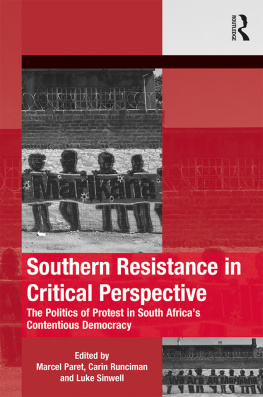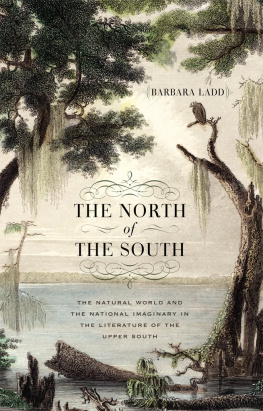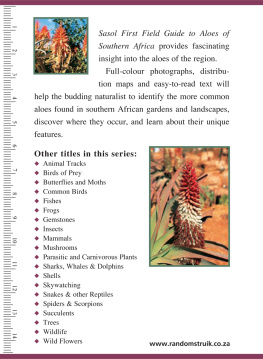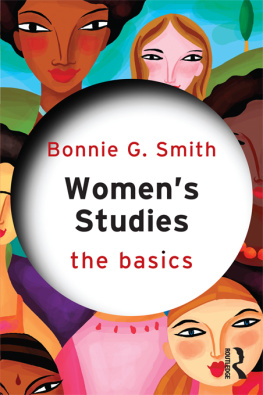FINDING PURPLE AMERICA

Series Editors
Jon Smith, Simon Fraser University
Rich Richardson, Cornell University
Advisory Board
Houston A. Baker Jr., Vanderbilt University
Leigh Anne Duck, The University of Mississippi
Jennifer Greeson, The University of Virginia
Trudier Harris, The University of North Carolina, Chapel Hill
John T. Matthews, Boston University
Claudia Milian, Duke University
Tara McPherson, The University of Southern California
THE SOUTH AND THE FUTURE OF AMERICAN CULTURAL STUDIES
FINDING PURPLE AMERICA
JON SMITH

originally appeared in different form as Faulkner, Metropolitan Fashion, and The South, by Jon Smith in Faulkners Inheritance: Faulkner and Yoknapatawpha 2005, edited by Joseph R. Urgo and Ann J. Abadie (Jackson: University of Mississippi Press, 2007).
2013 by the University of Georgia Press
Athens, Georgia 30602
www.ugapress.org
All rights reserved
Set in Sabon MT Pro by Graphic Composition, Inc., Bogart, Georgia.
Printed digitally
Library of Congress Cataloging-in-Publication Data
Smith, Jon
Finding purple America : the South and the future of American cultural studies / Jon Smith.
pages cm. (The new southern studies)
Includes bibliographical references and index.
ISBN 978-0-8203-3321-2 (hardcover : alk. paper)
ISBN 0-8203-3321-2 (hardcover : alk. paper)
ISBN 978-0-8203-4526-0 (pbk. : alk. paper)
ISBN 0-8203-4526-1 (pbk. : alk. paper)
1. Southern StatesStudy and teaching. 2. Southern StatesCivilization. 3. United StatesStudy and teaching. 4. United StatesCivilization. I. Title.
F208.5.S65 2013
975.07dc23 2012047746
British Library Cataloging-in-Publication Data available
ISBN for digital edition: 978-0-8203-4572-7
For my friends
CONTENTS
PREFACE
This did not start out to be a book about fantasies. It started out as an attempt to understand why a couple dozen literary scholars of my generationscholars whose work would eventually be called the new southern studiesdidnt seem to fit in anywhere. Our experiences with American studies could largely be summed up by an anecdote Katie Henninger related a few years ago in the pages of Contemporary Literature: in a job interview, Henninger recalled, she was asked, Are you an Americanist who does southern, or a southernist who does American? asserting an unbridgeable difference and implying that if I wanted a job teaching postmodern American literature, Id best be the former (177n1). The idea among Americanists, apparently, was that if you worked on the South, you must be the sort of tweedy, backward professional southernist described decades ago by Paul Bov. Yet we were hardly more welcome in southern studies; over and over again, those of us who worked on the South from a progressive (non-neo-agrarian) perspective found ourselves losing out in southern literature job searches to candidates with much more traditional dissertations from much more traditional places. Worse, even at Americanist journals and presses editors kept sending our work for peer review to, well, professional southernists, who too often misunderstood it, resented that it didnt cite them or their friends much (work that did, however, was praised in code as judicious), sometimes feared it, and frequently tried to spike it.
In just the past three or four years, the situation has changed dramaticallysort of. The new southern studies is now decently represented in top-twenty programs: Jennifer Greeson at Virginia, Rich Richardson at Cornell, Melanie Benson Taylor at Dartmouth, Harry Stecopoulos at Iowa, Cole Hutchison at Texas. (Long exceptional, Tara McPherson and Judith Jackson Fossett remain at the University of Southern California.) Even the southern studies centers are starting to come around: the University of Mississippi recently made itself a playa by hiring to tenure both Leigh Anne Duck and Martyn Bone. (The latter has now returned to Copenhagen, citing in part, and perhaps in jest, Mississippis new law permitting guns in college classrooms.) Nancy Graysons vision in establishing the present book series at the University of Georgia Press has largely bypassed the professional southernist roadblock; other series routinely send the work of those southernists to us. (We try to be gracious.) Still, in writing this book, I have come to realize that southern exceptionalism remains much more than an academic disciplinary division. It is loaded with identitarian and ideological fantasies about who we are, and those fantasies can literally disrupt critics and historians ability to comprehend a scholarly argument. Moreover, by their very nature, those fantasies dont necessarily go away, even should the scholars on the conscious, logical level no longer endorse them.
This is why, I argue in the chapters that follow, dynamiting the rails of old southern studies didnt work, and why I advocate shooting the jukebox (disrupting the fundamental fantasy, as explained in ) instead. But this book is more about shooting the jukebox of American cultural studies. Almost a decade after Houston Baker and Dana Nelson decried southern exceptionalism in the preface to their special issue of American Literature on Violence, the Body, and The South, Donald Pease published his book The New American Exceptionalism, which included a chapter about Roland Emmerichs rather obviously execrable Mel Gibson movie The Patriot and what Pease called the films Southernification of America. Pease never addresses the films admittedly laughable attempts to distance its white southern landowner from slavery (the black laborers on the Revolutionary-era plantation owned by Gibsons character turn out to be free, paid employees! Who knew?), and to have its one (!) token racist, played by poor Donal Logue, learn to respect his one (!) token black co-rebel. But Pease isnt angry at such whitewashing. Hes angry that the film ostensibly restaged the emergence of the American nation within a geographical region that had formerly been all but excluded from the national symbolic order (145). To be clear: he isnt even angry here at the national shame of slavery, racism, and segregation. Hes angry that the film refuses to shame the region itself. In Peases vision, the South is simply a discredited region (147) with a discredited history (147), an exceptional impurity that must be expelled, excluded from the national symbolic order, and the horror of the film is thateven though, however ridiculously and anachronistically, it explicitly condemns slavery and racismit produced a fantasy that was designed to transmute the South from a discredited region to an exemplary geographical space (147). Thus a book intended to critique American exceptionalism ends up embodying it.
It became clear to me that the proper response to this sort of thing could not be, yet again, to direct Pease to Baker and Nelsons essay, nor to Ducks The Nations Region, nor to Greesons Our South, nor to Matthew Lassiter and Joseph Crespinos excellent collection of historical essays The Myth of Southern Exceptionalism, which neatly takes down the whole southernization metaphor. Rather, I realized I needed to know what it is about the South that could so agitate a brilliant Americanist as to lead him into the same fallacy he had spent much of his career debunking. In Lacanian terms, what I wanted to know was the object-cause of Peases desire. That desire, of course, is interesting not because it is peculiar to Pease but because it seems so expressive of many New Americanists (baby boomers) continuing drive, in order to cling in fantasy (as Americanists?) to the very exceptional nation they consciously reject, to disavow the South as what Baker and Nelson called an outland where we know they live: all those guilty, white yahoos who just dont like people of color (Baker and Nelson 235). For American studies not to keep getting blindsided over and over again by things like the 2004 and 2010 elections, however, we all need to see the nation in its senseless actuality: the reactionary suburban meat-and-potatoes Orange County tedium alongside the exciting urban gumbo of L.A.; racial and religious conservatism not expelled to a disavowed South but virtually everywhere. As the one segment of the nation that, despite its 100 million inhabitants, finds itself all but excluded from the national symbolic order, or at least the New Americanists version thereof, the South quite precisely tends to assume the place of the national Real. This is why, in refusing boomer disavowal of the South, the new southern studies is ultimately neither a critical regionalism (yawn) nor a rebellion against old southern studies (yawn) but an attempt to fix a broken American studies, to disrupt boomer
Next page











